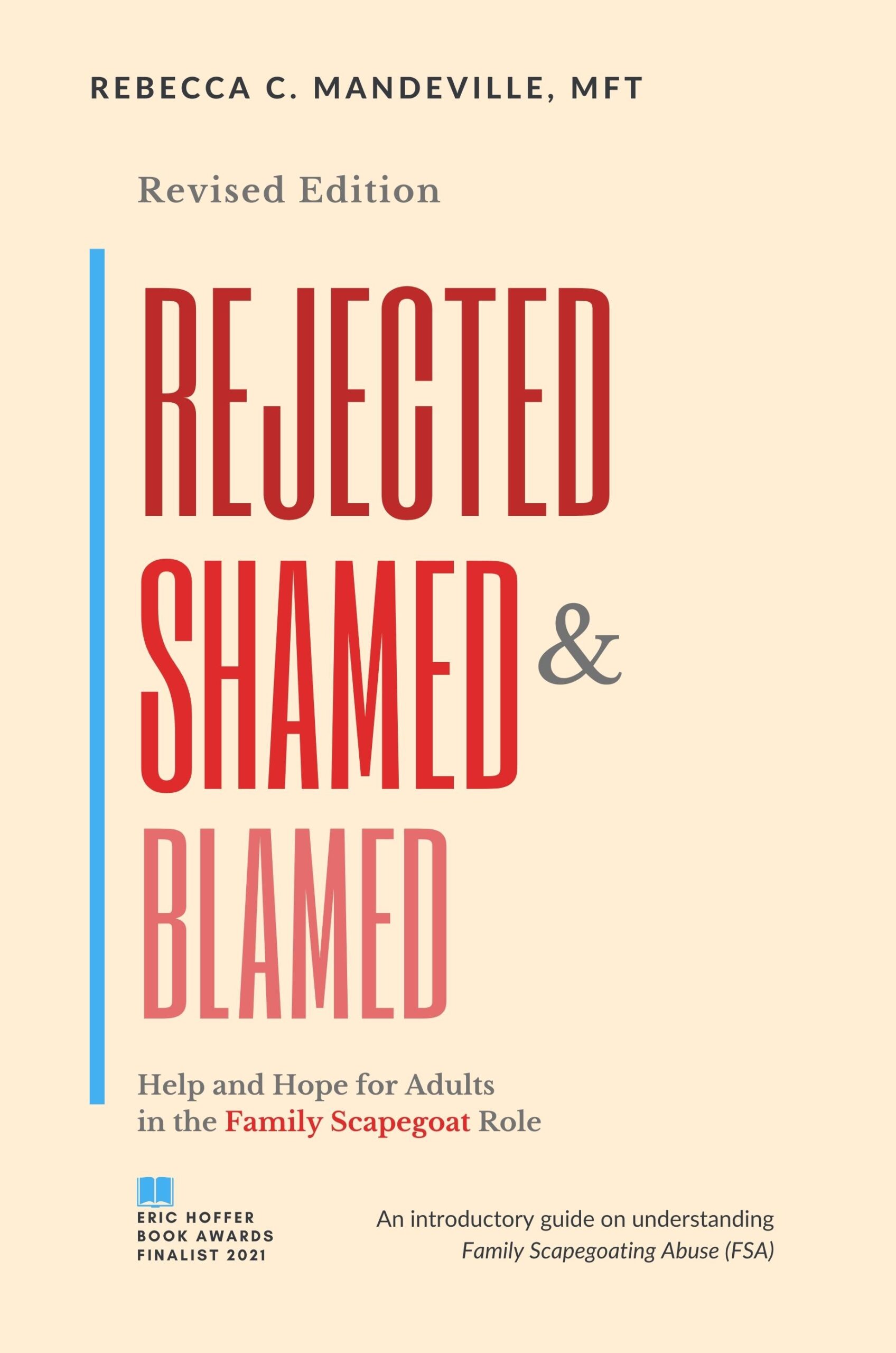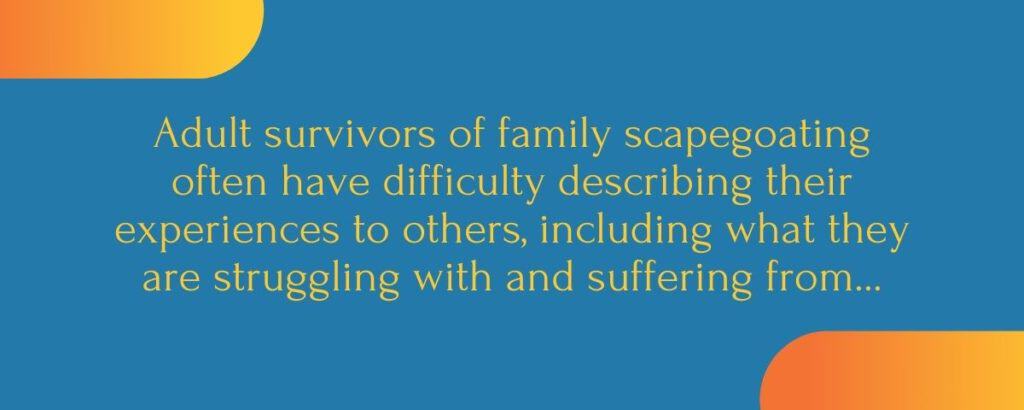You may not be able to stop people in your family from scapegoating you, but you can stop identifying with the ‘scapegoat story’ and the dysfunctional and damaging family narrative.
To learn more about family scapegoating abuse (FSA), you may purchase my introductory book, Rejected, Shamed, and Blamed, via the links below. Thank you to all my readers who helped make this a best-seller at various online book retailers since its release in 2020. I no longer advertise or promote this book so if you find value in it and know someone who might need to read it, please pass it on.
Rebecca C. Mandeville, MFT
Foreign Translation Rights Requests (Publishers Click Here)
My introductory psycho-educational guide, Rejected, Shamed, and Blamed, is informed by my research on what I named family scapegoating abuse (FSA) while serving as Core Faculty at the Institute of Transpersonal Psychology, and by over 20 years experience working with scapegoated adult survivors in clinical and private practice settings.

Buy Rejected, Shamed, and Blamed: Help and Hope for Adults in the Family Scapegoat Role on Amazon.
You can also purchase the eBook at these online Book Retailers.
This is an excellent book for patients or practitioners. The author shares her extensive experience working with and studying toxic families and how to recover from the experience. This book is a must have for anyone treating those from dysfunctional families or family members themselves.
– Melissa Petty, LMSW
BOOK DESCRIPTION
Family scapegoating is an insidious form of “invisible” abuse that is difficult to recognize. It is therefore critical that adult survivors understand what type of abuse they are trying to recover from. In Rejected, Shamed, and Blamed, Psychotherapist and Family Systems expert Rebecca C. Mandeville uses her research findings on what she named family scapegoating abuse (FSA) to help survivors recognize and release the damaging ‘scapegoat’ narrative. This 2nd revision includes additional recovery suggestions and resources, as well as updated links (Kindle version).
In these pages you’ll discover:
- The FSA Self-Assessment Test
- How to recognize and identify family scapegoating abuse (FSA) signs and symptoms
- Why scapegoated individuals have difficulty recognizing they are being abused
- How complex trauma (C-PTSD), betrayal trauma, and toxic shame impede FSA recovery
- How intergenerational trauma and false narratives fuel family scapegoating dynamics
- Why the family ‘Empath’ can end up scapegoated
- Strategies to reduce fawning behaviors and realign with your ‘true self’
- Recommended resources and therapy modalities for FSA recovery
Understanding what happened to you is the first critical step toward healing: What readers are saying about Rejected, Shamed, and Blamed:
“As a clinical social worker, I enthusiastically recommend this book!” – Amazon reviewer
“Very good book on an oft-misunderstood family dynamic.” – Amazon reviewer
“Life-changing read!” – Amazon reviewer
“Your book offers healing that I thought would never be possible! “- YouTube Subscriber
“My psychologist gave me your book to read. I finally could understand what happened to me in my family and now know what to do to recover from it. Your book literally saved my life!” – YouTube Subscriber
“Finally, a book written by a licensed clinician who has worked as a Family Therapist. Your insights on dysfunctional families that scapegoat are invaluable! ” – YouTube Subscriber
This is an excellent book for patients or practitioners. The author shares her extensive experience working with and studying toxic families and how to recover from the experience. This book is a must have for anyone treating those from dysfunctional families or family members themselves.– Melissa Petty, LMSW
From the Author: “Scapegoating in any social system is a dehumanizing process of ‘othering’. When you are the target of scapegoating in your family-of-origin, the consequences to your mental and emotional health can be severe, including the development of complex trauma (C-PTSD) symptoms. This introductory guide’s purpose is to help the reader determine if they are in the ‘family scapegoat’ role; also, to better understand family scapegoating dynamics and the devastating consequences of being ‘rejected, shamed, and blamed’ by the people who were supposed to love and care for them the most.”
Rebecca C. Mandeville is a licensed Marriage, Family Therapist and recognized Family Systems expert. She has over 20 years experience in treating adult survivors of dysfunctional family abuse in both clinical and private practice settings.. She coined the term family scapegoating abuse (FSA) while researching family scapegoating’s impact on the targeted child / adult child while Core Faculty at the Institute of Transpersonal Psychology. She is also a pioneer in identifying the overlapping symptoms of family scapegoating abuse (FSA), complex trauma (C-PTSD), betrayal trauma, and the devastating impact and effects of multigenerational trauma on adult survivors of dysfunctional, narcissistic, or abusive family systems.

Rejected, Shamed, and Blamed was a 2021 Eric Hoffer Book Awards Finalist.
Editorial Reviews
